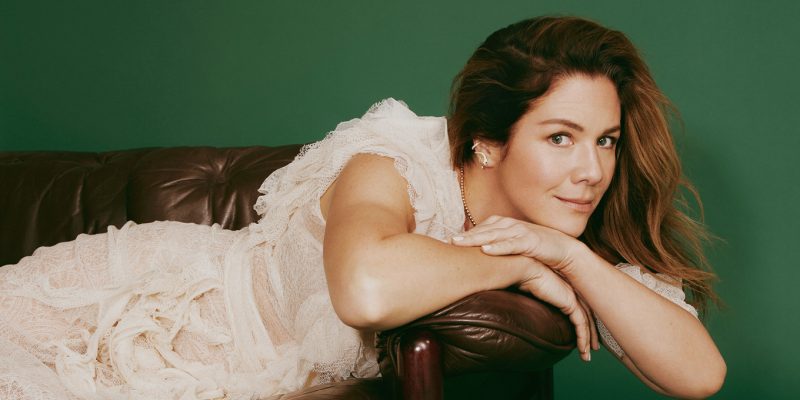Society
Where Do We Go From Here?
How does hope look in an era defined by crisis? Hattie Crisell discovers a growing movement to reframe optimism.
by : Hattie Crisell- Apr 20th, 2023

ARTWORK, JAZZ GRANT
In recent years, the world has seemed like a place of mounting worst-case scenarios. Any number of things might play on your mind in the middle of the night: the cost-of-living crisis, the war in Ukraine, nuclear threats, the climate emergency, energy shortages, the lingering pandemic, structural racism, a looming recession. No wonder people don’t want to watch or read the news. According to a 2022 Reuters Institute Digital News Report, 71 percent of Canadians actively avoid the news—up from 58 percent in 2019. The most commonly cited reasons for wanting to disconnect were negative mental-health impacts and too much news about politics and COVID-19.
It’s understandable. Feeling anxiety in the face of grim headlines is natural. A survey by climate-anxiety non-profit Force of Nature found that 70 percent of young people feel hopeless about the climate crisis, while half of all tenants are worried they won’t be able to afford their rent this year, according to Market Financial Solutions. There’s no doubt that these problems are serious, but are things truly hopeless? Or is it possible that we’ve been too quick to accept that the world is on fire, society is doomed and there’s nothing we can do?
Journalist Daisy Greenwell argues that our perspective is skewed because we’re not being given the full story. After many years working for a major newspaper, Greenwell was having her own struggles with maintaining hope. She became more depressed with every headline about politicians ignoring environmental chaos. “I had about a year of feeling really bleak—all my time was coloured with despair,” she says. “It made me think: ‘There’s no point in working here anymore because it’s not helping. I only want to do work that’s actually making a difference.’”
Then she came across an online and print magazine called Positive News. “I remember the first time I read it—it was extraordinary,” says Greenwell. “It felt like a weight had come off my shoulders.” She is now acting editor of the publication, which is part of a growing international movement known as “solutions journalism” or “constructive journalism.” It’s written with the same reporting standards as a mainstream newspaper but has one crucial difference: It focuses on what’s going right in the world.
Recent stories include a new approach to social housing that has significantly reduced homelessness in cities such as Houston, Vienna and Helsinki; a British plumber who organized free services to help low-income people stay warm over the winter; and groups of Indigenous people who’ve succeeded in protecting huge swaths of land in the Amazon. Greenwell says she hears of far more good news than she can actually fit into the magazine—yet the majority of the media simply ignores it. “If you suggest a good-news story in a traditional newsroom, the response is ‘Oh, that’s a bit boring,’” she says. Psychologists believe that humans have a negativity bias: We’re drawn to clicking on or reading stories that tell us about potential dangers in the world because we have an evolutionary need to be aware of threats. Unfortunately, this means that editors are motivated to fill their pages with terrifying stuff. “And that doesn’t leave space for shining a light on things that are going right,” says Greenwell.
The speed with which we consume the news may also be making us feel more panicked than is strictly necessary. In 2005, Buddhist monk Gelong Thubten entered a retreat on a Scottish island, which meant cutting himself off from phones, the internet and news for four years. “When I came out of that retreat in 2009 and arrived in London, technology had completely changed,” he says. “The iPhone, YouTube, Twitter and Facebook had all emerged, and it was shocking for me to see how things had sped up. It really surprised me how invasive information had become. Yes, there are very frightening things happening in the world, but do we need to have our stress levels spiked every hour?”
Helping us cope with this nerve-jangling situation are a number of spiritual and philosophical movements that have recently gathered steam. The self-help industry has pivoted in recent years to focus on the importance of “setting boundaries.” It’s a subject that now crops up in conversations about everything from dating to work hours to internet use.
Laurie Santos, a professor of psychology at Yale University, is host of the podcast The Happiness Lab, which shares research on the science of joy. Santos recommends drawing boundaries around news too. “Just because the cycle is 24-7 doesn’t mean we need to consume it 24-7,” she says. “We can make a decision to shut off notifications and spend only 30 minutes a day taking in the information we need.” Thubten adds that if we’re going to use sites like Twitter, we can choose to use them in a more constructive way. “I think social media can be a powerful platform for spreading love instead of fear,” he says.
“Terrible events are powerful catalysts and often give rise to incredible progress.”
The ancient Greco-Roman philosophy of Stoicism has also staged an unexpected comeback thanks to our stressful times, with the @dailystoic Instagram account amassing 1.8 million followers. It’s not a school of thought that will hold your hand during challenging times; instead, roughly speaking, it will encourage you to toughen up. Stoics advise working out what’s within your control and not wasting energy on what isn’t, reminding yourself frequently that we’re all going to die (so that fear of death or loss loses its power) and generally trusting that you can cope with whatever comes next.
It’s a perspective that has a surprising amount in common with meditation, which has also become hugely popular as an antidote to modern anxiety. In 2018, the Centers for Disease Control and Prevention found that it was the fastest-growing health trend in America. “Meditation helps us to look at the thoughts and emotions that are really making us suffer so that it becomes less about what is happening in the world and more about changing our reactions,” says Thubten. He works with major organizations, including the UN, teaching meditation and the benefits of mindfulness. “I’m not suggesting we just block it all out. I’m suggesting that we could learn to have more resilience and more of an ability to stay calm and stay present even when things around us seem to be falling apart.”
In fact, what well-being experts seem to agree on is that if you want to feel hopeful, you need to acknowledge the negative stuff first. “Evidence suggests that suppressing our bad emotions just makes them worse,” says Santos. “Hope isn’t about the absence of anxiety or fear. It’s not a Pollyanna view of the world, where you pretend everything is perfect. True hope requires that you address what’s actually happening in the present moment, that you allow the scary stuff in and notice how it makes you feel.”
If you’re struggling with that idea, Santos recommends a meditation known by the acronym RAIN, which was popularized by psychologist Tara Brach. First you “recognize” what you’re feeling or thinking in the moment, and then you “allow” those feelings to exist without trying to fix them. Next, you “investigate” by asking yourself more about what you’re experiencing and what you might need, and then, finally, you “nurture” yourself with a message of love or forgiveness. “The research shows that this can be a powerful technique,” says Santos. Unlike brushing your fear under the carpet, it can leave you with a renewed sense of calm and control.
When you’re feeling particularly low about the news cycle, it’s also worth understanding that terrible events are powerful catalysts and often give rise to incredible progress. The First World War gave us female suffrage; the Second World War gave the U.K. its National Health Service (similar to our Canadian health-care system). And now, as a result of the attack on Ukraine, the EU has dramatically sped up plans to end its reliance on Russia’s fossil fuels and invest in sustainable sources. “Putin’s war has completely turbocharged the transition to renewable energy,” says Greenwell. “The most recent International Energy Agency report was quite cheering reading, surprisingly.”
A recent New York Times article by David Wallace-Wells, the author of The Uninhabitable Earth (which is as upbeat as it sounds), noted that the predicted warming of the earth now sits between two and three degrees, down from four or five a few years ago. It’s not exactly good news, but concerted human effort has cut expected warming by almost half in five years. The point is not that things aren’t bad but that they can change, and it can be the biggest stumbling blocks that lead to the most ambitious changes in direction.
Thubten believes that closer to home we can also channel negativity in the world to help us become better and more contented people. “It’s okay if things are uncomfortable in life,” he says. “We can be okay with discomfort. With meditation, you get stronger and you reduce your fear. You become more awake, more alive and more interested in doing good. You’re not able to sort out international problems, but you can definitely do something compassionate in your community—and that makes life more meaningful.”
That’s what moving into constructive journalism has done for Greenwell, who no longer suffers from bouts of despair. “On almost every single count—extreme poverty, maternal mortality, child mortality, education of girls, life expectancy—the world is a better place than it was 100 years ago,” she says. “The only things that are not better are the climate and biodiversity. But even on that front, in a way, things are looking more hopeful than they did five years ago, when some world leaders were still ignoring [these issues]. Every country now has a plan, and that gives me hope.”
Readers of Positive News write to her and share tales of the action the magazine has empowered them to take; one reader set up a therapeutic scheme for Ukrainian orphans being rehomed in her city. “Humans are essentially good,” says Greenwell. There are still plenty of serious problems in the world, of course. But perhaps in 2023, we’re capable of solving more than we think.
Newsletter
Join our mailing list for the latest and biggest in fashion trends, beauty, culture and celebrity.
Read Next

Fashion
Are Fashion Brands Getting Greener?
While the fashion industry is making a lot of noise about being more sustainable, a closer look shows that its earth-friendly commitments are often more illusion than reality.
by : Marouchka Franjulien- Apr 19th, 2024

Beauty
What Beauty Packaging Is Actually Sustainable?
We sought out leaders in the field to help us get to the bottom of the blue bin once and for all.
by : Victoria Christie- Apr 19th, 2024

Culture
ELLE Escapes: Savannah
Where to go, stay, eat and drink in “the Hostess City of the South.”
by : ELLE- Apr 15th, 2024




